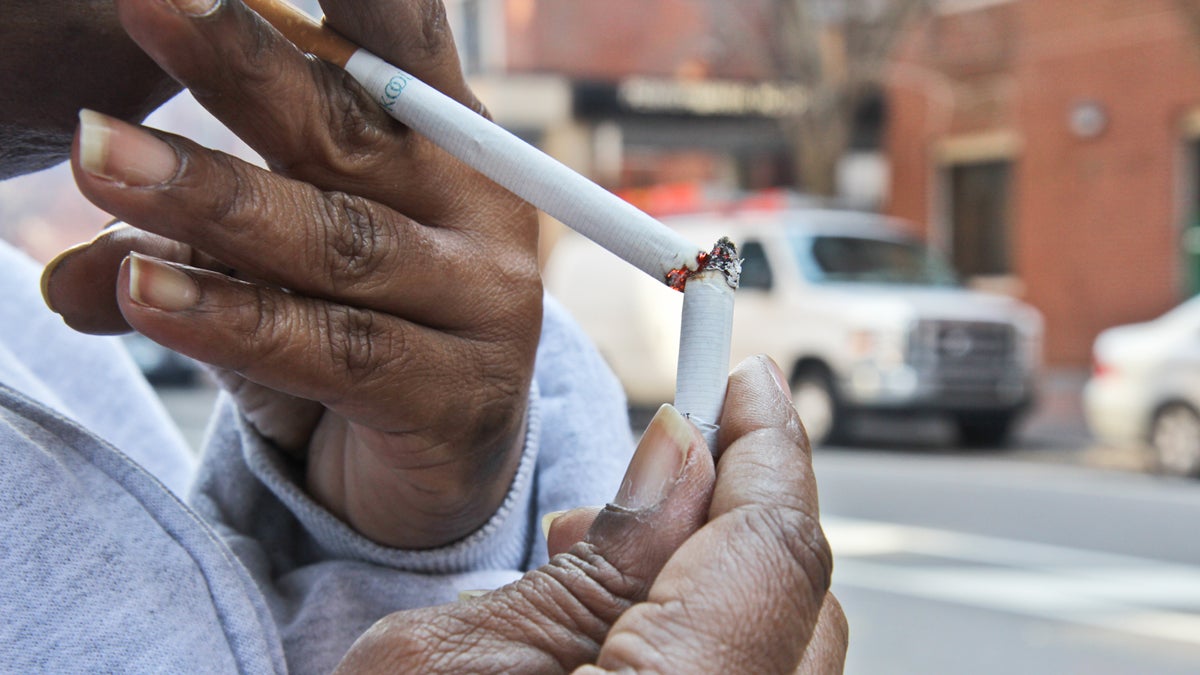Smoking rates dip in NJ, but not for those with mental health issues

(Kimberly Paynter/WHYY)
Smoking rates among New Jersey residents with mental health issues have not budged over the past decade, but have dropped among the rest of the Garden State’s population.
Health surveys between 2001 and 2010 show that general smoking rates in New Jersey are about 11 percent — but for those with mental health issues, the rate is 23 percent. The national average is about 18 percent.
“Somehow this very vulnerable population is really just being left behind,” said Marc Steinberg, a psychiatry professor at Rutgers’ Robert Wood Johnson Medical School, who conducted the research.
The reasons for the higher rates are not clear, but Steinberg said that smoking-cessation messages and interventions are clearly not reaching this group. Providers should address this issue with their clients more aggressively, he suggested.
“Behavioral health care providers have many of the skills that would be required to help people quit smoking, we just need to give them a little bit more training in that area,” Steinberg said.
Smoking is especially dangerous for people who have mental illnesses, he added.
“For example, many of the psychiatric medications patients are taking are made less effective by something in the tobacco smoke,” Steinberg said. “Not by the nicotine, but something in the tobacco smoke makes their bodies metabolize these medications too quickly.”
Smoking could result in the use of higher doses of medications, which have negative side effects.
WHYY is your source for fact-based, in-depth journalism and information. As a nonprofit organization, we rely on financial support from readers like you. Please give today.


